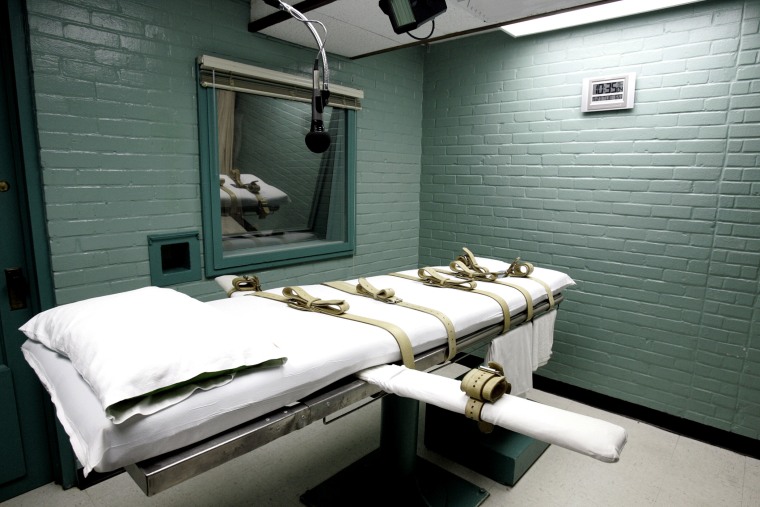Several years ago, John Cole
described the Cameron Todd Willingham case as a story that "reads like a Grisham novel -- allegations of murder and arson, the execution of an innocent man, corrupt politicos." As it happens, the real-life story appears to have a new chapter.
As long time readers may
recall, Texas executed Willingham a decade ago, after he was convicted of killing his daughters in a deliberate house fire. Prosecutors secured a conviction thanks to the testimony of an "expert" whose credibility and findings were later
torn to shreds.
But that's really just the start. As controversy surrounding the case grew, the Texas Forensic Science Commission, created to consider the competence of those who offer forensic testimony, hired an
actual arson expert to consider the evidence, but before the panel could proceed, Gov. Rick Perry (R) started
firing commission members before they could discuss the case.
But wasn't there a jailhouse informant who said Willingham confessed to him? There was, but in the
latest twist, "newly discovered evidence suggests that the prosecutor in the case may have concealed a deal with a jailhouse informant whose testimony was a key part of the execution decision."
In recent weeks, as part of an effort to obtain a posthumous exoneration from the Texas Board of Pardons and Paroles and Gov. Rick Perry, lawyers working on Mr. Willingham's behalf say they have found evidence that [jailhouse informant Johnny Webb] gave his testimony in return for a reduced prison sentence. Evidence of an undisclosed deal could have proved exculpatory during Mr. Willingham's trial or figured in subsequent appeals, but Mr. Webb and the prosecutor at trial, John Jackson -- who would later become a judge -- explicitly denied that any deal existed during Mr. Webb's testimony.
If you're starting to think Texas executed an innocent man, you're not the only one.
More from the
New York Times' article.
What has changed is that investigators for the Innocence Project have discovered a curt handwritten note in Mr. Webb's file in the district attorney's office in Corsicana. The current district attorney, R. Lowell Thompson, made the files available to the Innocence Project lawyers, and in late November one of the lawyers, Bryce Benjet, received a box of photocopies. As he worked through the stack of papers, he saw a note scrawled on the inside of the district attorney's file folder stating that Mr. Webb's charges were to be listed as robbery in the second degree, not the heavier first-degree robbery charge he had originally been convicted on, "based on coop in Willingham." Mr. Benjet recalled a "rush of excitement," he said, and thought, "This is what we've been looking for."
The Innocence Project's Barry Scheck called this a "smoking pistol" in the case, adding that he doesn't see an "innocent explanation."
